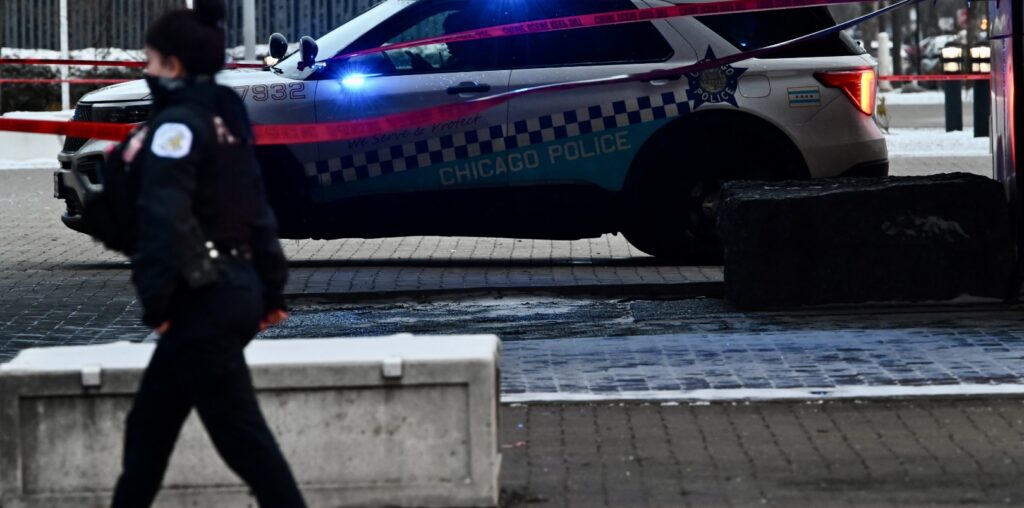CHICAGO —The city will save mental health support positions for police that Mayor Brandon Johnson proposed cutting as a cost-saving measure, Police Supt. Larry Snelling said Friday.
Under the mayor’s budget plan for 2025, nine vacant positions for clinical therapists within the Chicago Police Department would have been slashed, with the 13 people already in those roles keeping their jobs — ending a longstanding effort to have one therapist for each of the city’s 22 police districts.
But at a City Council budget hearing Friday, Snelling said he has since spoken to the mayor, who agreed to retain all those positions.
“That’s taken off the table now. … We are back to where we need to be,” Snelling said. “Those positions are extremely important to us.”
The reversal comes the same day Block Club Chicago reported on the cuts. Police-reform advocates have rallied around the issue, saying a healthier rank-and-file is a necessary step toward safer policing.
The Mayor’s Office said in a statement, “It is accurate. We are working to move those positions back in because officer wellness and mental well-being are important to the Mayor.”
Between 2016 and 2023, 31 police department employees died by suicide, including seven in 2022 alone, according to the Sun-Times. Three officer suicides happened within a month, reigniting a push to expand mental health services as a short-staffed force worked through canceled days off.
A 2017 report from the U.S. Department of Justice found Chicago cops had a 60 percent higher suicide rate than other law enforcement. A 2022 report by the city’s inspector general slammed the department for inadequately training supervisors to spot officers in need of help.
Ald. Chris Taliaferro (29th), a former police officer, said at Friday’s hearing he hoped the Johnson administration would honor former Mayor Lori Lightfoot’s commitment to hire a clinical therapist per police district following the devastating stretch of three officer suicides in a month in 2022.
“I find this concerning in light of we’re opening two or three mental health clinics, we see the need of mental health treatment in the City of Chicago, but we’re taking those vacancies out of the budget with our police department,” Taliaferro said.
Snelling said it was the department’s “responsibility” to support the well-being of its officers.
“When we talk about wellness for our officers, again, it’s extremely important that our officers have people to talk to,” Snelling said. “They’re dealing with PTSD on a regular basis.”

Chicago police have been slow to make progress on a federal court consent decree that led to the creation of its Office of Constitutional Policing and Reform, under which the therapist positions fall.
Prompted by the police murder of teenager Laquan McDonald a decade ago, the 2019 consent decree includes a section on “officer wellness and support,” an area where the department had recently taken “several steps forward toward full compliance.”
But the police department has struggled to fully staff clinical therapists even when they have been budgeted for.
Alexa James, chief executive officer of the National Alliance on Mental Illness Chicago and the police department’s former wellness advisor, said therapists are in high demand and can often command higher pay in private practice or corporate positions, while the city has a process that makes it notoriously “slower to hire.”
On Friday, Snelling said he wouldn’t “rush put to someone in a position just to fill that position.”
But the Office of Constitutional Policing and Reform is facing a 45 percent reduction as Johnson to looks to cut vacant positions across the city to address an estimated $1 billion budget deficit.
Johnson’s proposal to hike property taxes by $300 million was voted down unanimously by the City Council Thursday, although alderpeople have yet to vote on any of the proposed cuts.
The potential cuts to the reform office prompted concerns from Illinois Attorney General Kwame Raoul, who sent a letter to Johnson Thursday warning they could put the city “at significant risk of being held in contempt of court,” according to the Sun-Times.
Police reform advocates, including Joe Ferguson, Civic Federation president, and Anthony Driver, president of the Community Commission on Public Safety and Accountability, are joining the call to claw back the reductions as the political and legal pushback unravels.
Snelling, Johnson’s pick for superintendent last year, didn’t elaborate when asked about the reform office cuts Friday.
“We made sure we fought for every single position that we knew was going to be of the utmost importance for moving the consent decree forward,” Snelling said.
Block Club’s Mick Dumke and Manny Ramos contributed reporting.
Listen to the Block Club Chicago podcast:

